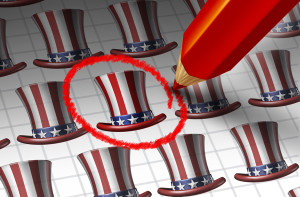World shares swung higher and the Mexican peso surged more than two percent on Tuesday, as investors awarded the first U.S. presidential debate to Democrat Hillary Clinton over Republican Donald Trump.
Markets have tended to see Clinton as the candidate of the status quo, while few are sure what a Trump presidency might mean for U.S. foreign policy, international trade deals or the domestic economy.
Snap polls after the debate suggested Clinton had bolstered her chances. She accused Republican Trump of racism, sexism and tax avoidance while the real estate tycoon, making his first run for public office, said Clinton’s long years of service represented “bad experience”.
For markets the clear winner was the Mexican peso. It surged 2.3 percent having hit an all-time trough in recent days on concerns that a Trump presidency would threaten Mexico’s exports to the United States, its single biggest market.
EMini futures for the S&P 500 ESc1 recovered to gain 0.6 percent, in unusually energetic Asian hours, though European shares saw a 0.5 percent early bounce .FTEU3 wiped out as worries about banks such as Deutsche Bank (DBKGn.DE) returned. [.EU].SX7E
“Markets started to call the debate for Hillary within the first 15 minutes or so, with the Mexican peso surging in what is probably its busiest Asian session in years,” said Sean Callow, a senior currency analyst at Westpac in Sydney.
Europe was also digesting news that a referendum over Italian Prime Minister Matteo Renzi’s flagship constitutional reform will be held on Dec. 4, with the fate of his administration likely to hinge on the outcome.
It was one of the latest dates he could have picked and Italian bond yields fell to a 2-1/2-week low as investors took a crumb of comfort that it will give him maximum time to try and turn around what now looks like a defeat.
“It is being kicked down the road quite a bit this can,” said Rabobank’s head of macro strategy research Elwin de Groot.
“He is trying to buy time but that could also be a risk. He is banking that he will win back a bit of public support but there is the possibility that he might not.”
There was mixed news, meanwhile, for the European Central Bank as data showed loans to euro zone businesses dipped slightly in August despite its massive stimulus program.
The euro fell for the first time in five days, slipping to $1.1237 and to 1.1538 per pound.
